Shifting to an Outside in Engagement Model and Mindset
By Dominique Côté
Owner and Founder, Cosawi
Pharma needs to transform the way it engages customers if it is to adapt to disruption in the healthcare landscape
For the past 30 + years, I have been involved in pharma discussions regarding the need to radically change our sales and engagement model. The pharma industry has shifted from defining its customers as the physicians prescribing to patients to a much more complex environment – one where the customer is defined by a diverse group of players which participate in the decision-making around treatment and access. From my perspective, the ultimate customer, although indirectly, has always been the patient. This is now becoming increasingly important. However, in an industry that is being highly disrupted by the current technology explosion and remains under significant regulatory pressure, both the demand and the uncertainty are making it easier said than done to engage in a cohesive fashion with the different customers.
Mega trends
These are a few of the mega trends that are forcing us to change our traditional engagement models:
• Value-based healthcare is putting pressure on contracting and pricing as we move away from price-per-unit and volume-based pricing to value outcome and risk sharing; this is resulting in increased sophistication and partnering.
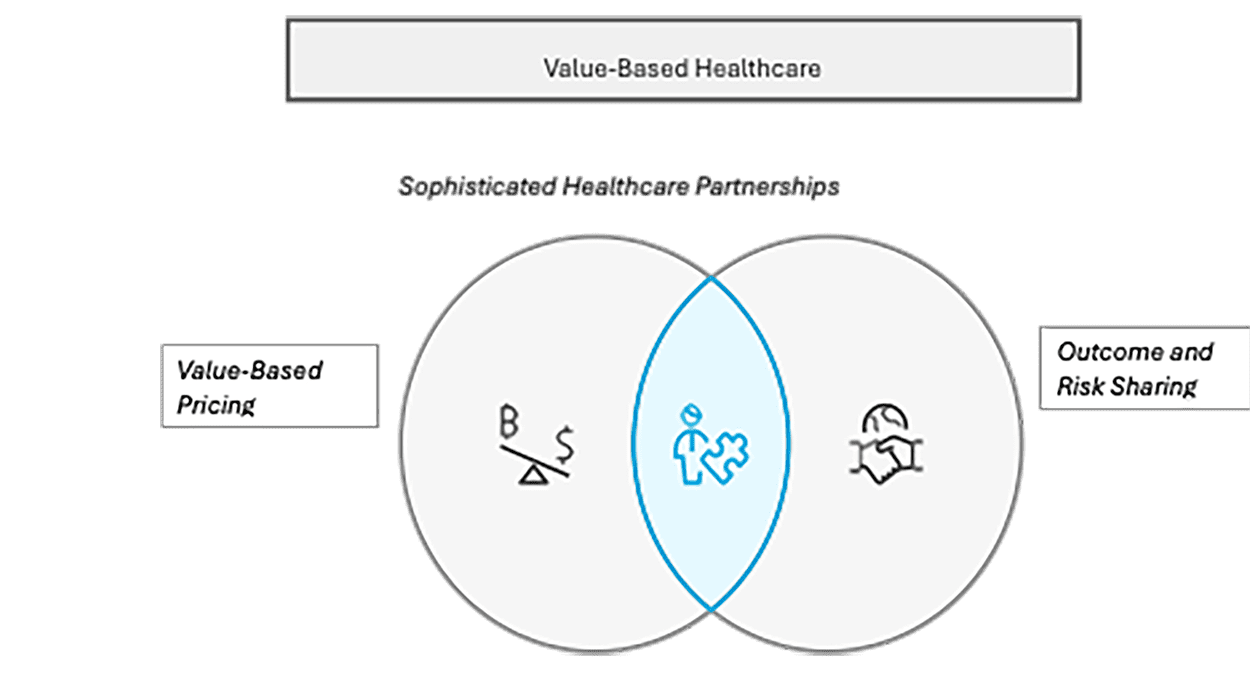
- Technology – from 3D printing of tissues and organs to machine learning and AI. The days of being diagnosed using a mix of a scanning app connected to personal health data via a virtual platform—where a doctor can diagnose and prescribe— to delivery of your prescription to your doorstep by drone may not be that far away. The technology will also transform our landscape from drug discovery to commercialization, as well as how patients access our products and solutions. By 2020, chronic conditions like diabetes will be diagnosed in minutes using cognitive systems. AI is not only advancing diagnostics but is also reshaping the care model by reducing administrative burdens, accelerating drug discovery, and enhancing patient care through individualized insights. As AI-powered systems automate routine tasks, healthcare professionals can focus more on patient interactions and personalized care. Additionally, AI is helping to address workforce shortages by performing tasks that were once time-consuming, allowing human resources to focus on higher value work.
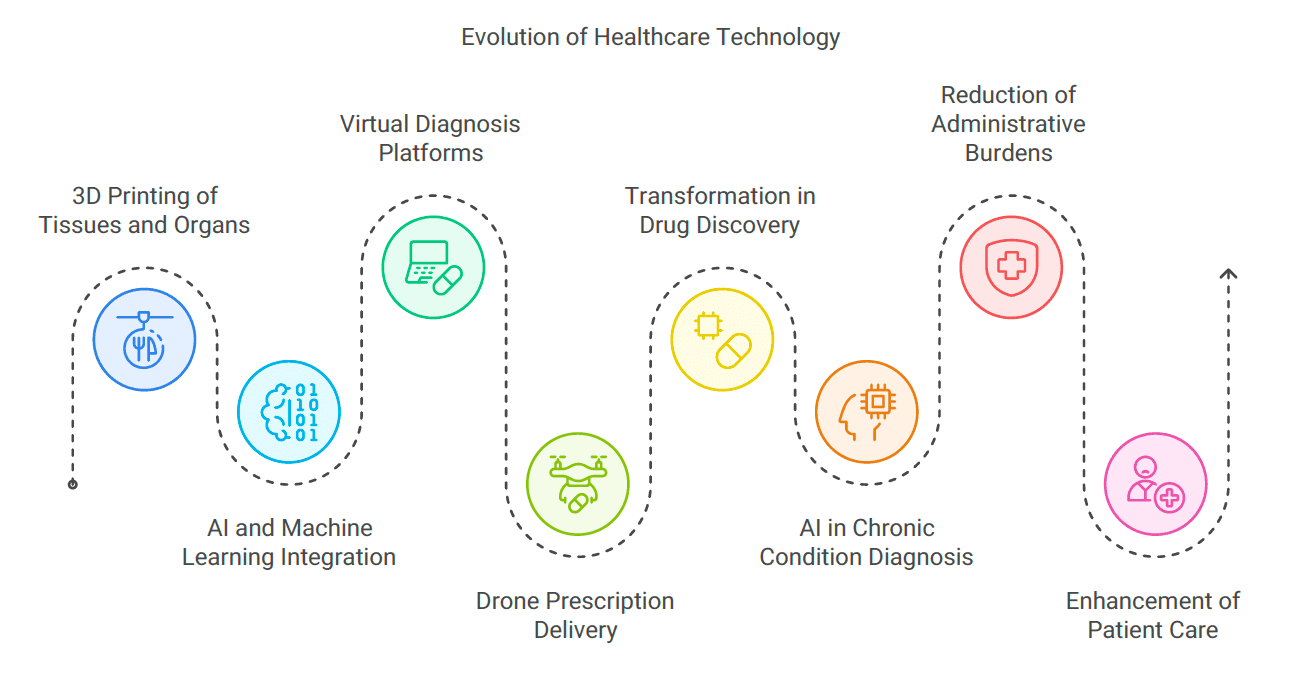
- Patient empowerment. Today’s patient is becoming increasingly important as a decision-maker. Meanwhile, the definition of health is shifting from being illness free to simply being well and varies for everyone. It is also broadening – today the solution to a disease is not simply medication but increasingly about a holistic approach that goes beyond the product to include devices, apps, environment, diet, and so on. Moreover, the overall solution is different for each patient and getting more individualized.
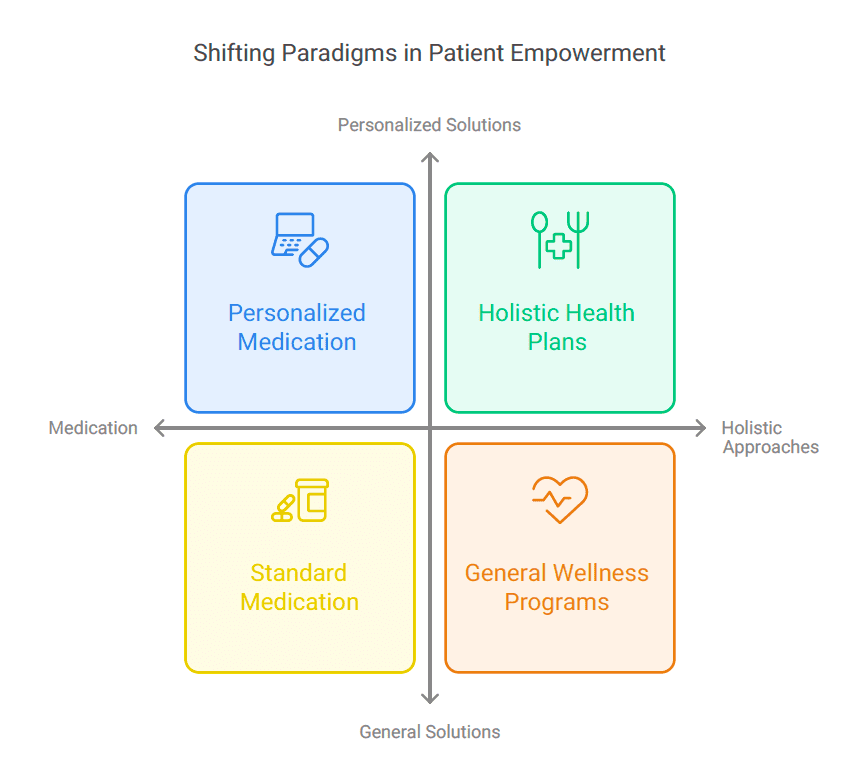
- Competitive landscape. Given this backdrop, pharma urgently needs to evolve how it partners around the basic issues and broad healthcare challenges. It is critical to create a more collaborative model aimed at curing illness, hopefully move more and more to preventive medicine and to provide holistic solutions to patients. All of this means that our competition is no longer solely the pharma industry, but technology companies and startups as well. To be successful, we need to change our mindset to create partnership with organisations, which we formerly used to view as our competitors, in order to provide more value to the healthcare systems and their patients in a coordinated effort.
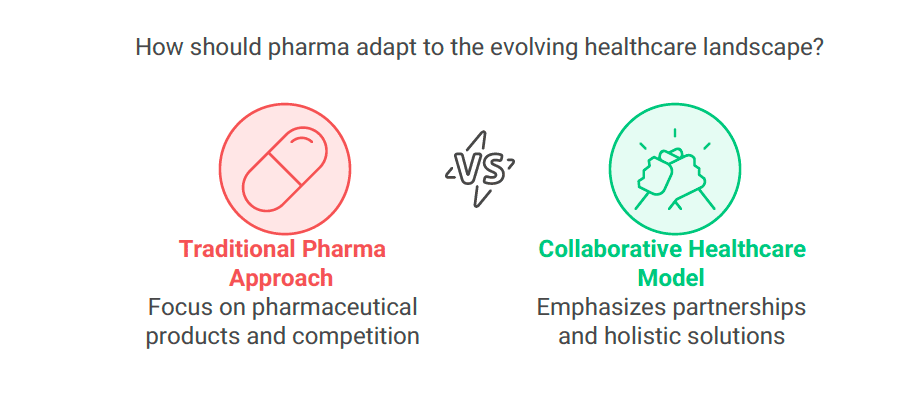
Updating our go-to-market model
In order to be able to face these changes and adapt to them, our go-to-market sales and engagement model will need to evolve as well. We will need to really start looking “outside in” and understand the broad view of our customers’ clinical, business, environmental and financial needs. We will need to look at our patients’ journeys and what is important to them, and then to explore how we can partner both within the organisation and externally to provide that holistic solution in a synergistic way. We will need to listen differently to bring simplicity and insight in a complex environment, understanding the whole customer, while also being proactive in identifying their challenges.
We need to be part of solving the big problems versus being marketing billboards. We need to start elevate the value we bring to beyond solution and really partnering is solving the big healthcare challenges.
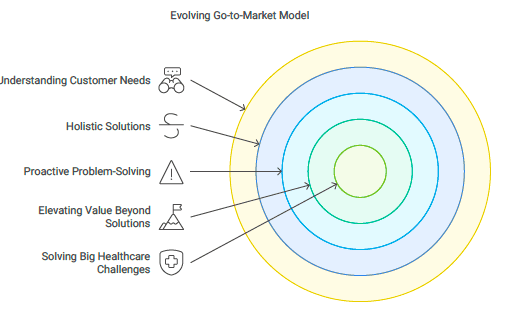
What does this mean for sales?
Our sales approach will have to change in three significant ways:
- Integration – We can expect to continue seeing a more integrated sales model aligning with the healthcare environment evolution. This model being based on account teams, where both the customer and the pharma put teams together to resolve issues and co-create solutions that have the most impact for the healthcare, the patient population and at a more strategic level. These account teams are no longer the salesperson in a silo anymore, but a full cross functional team including enabling functions, marketing, procurement, alliances and so on; they bring their own thinking to the table to create innovative value with the external customer with the flexibility of personalization for the patient through a holistic disease view.
- New emerging customers – We need to embrace new, emerging customers that are becoming critically important in decision making and continue to evolve in step with the evolution of the healthcare environment, including home management groups, healthcare businesses, and outsourcing businesses to name a few, and engage with multidisciplinary teams beyond health care professionals and clinical groups we are comfortable seeing.This requires different skillset and rounded businesspeople able to bring relevant team members and insight to their most important customers and accounts.
- Globalisation – Despite years of looking at accounts defined by countries, we can expect to see more and more emerging accounts in the healthcare system that are regional and global as with other industries’ strategic account models, we will be breaking boundaries. This will require account management individuals who can understand the needs and priorities of these regional/global accounts and connect internally with the sales organization to offer a full account view and accompanying strategic planning. This will also need us to connect the dots between the customer organization and the often-complex internal organization, initiating a shift to mirror key customers in our own organization.
The business model shift in pharma requires companies not only to build their ability to look beyond the pill/devices and innovate in terms of the value they can offer, but to embrace a true internal transformation involving the whole organization. The need is for a cultural shift to get closer, more human for our customers and our customer’s customers – the patients.
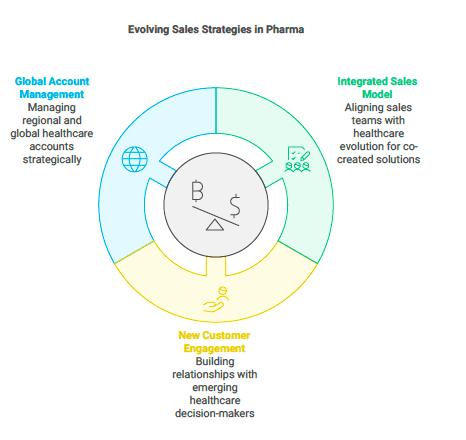
Pharma needs to enable the engagement models through people, technology and processes, and be driven by this.
Pharma needs to align their models with their respective healthcare environment, working collaboratively with their partners, competitors and customers to co-create solutions for the real needs of the patients and the health environment. This will hopefully lead us back to a more human approach to medicine, spending more time focused holistically on the patient and also fulfilling their unmet needs. It has the potential of also accelerating preventive medicine and research. We are going through exciting time where organizations that focus on this transformation will thrive. This is a great opportunity to make healthcare better for everyone, especially the patient: a role that we all find ourselves in at one time or another.

Recent Posts
IS YOUR SAM JOURNEY STALLED?
By AKAM Board Members Olivier Rivière (Powering), Armelle Dupont (Vetropak), Dominique Coté (Cosawi)Exploring methodology, governance, and organisation Setting the framework for thinking about K/GAM When considering the design of a Key or Global Account Management...
THE ESSENCE OF KAM/GAM
By AKAM Board Members Olivier Rivière (Powering), Armelle Dupont (Vetropak), Dominique Coté (Cosawi)Exploring methodology, governance, and organisation Setting the framework for thinking about K/GAM When considering the design of a Key or Global Account Management...
Why isn’t Marketing in the KAM/ SAM journey ?
By Dominique CôtéCEO & FounderCosawi Why isn’t Marketing in the KAM/ SAM journey ? Customer-Led and Team-Enabled Marketing In the evolving landscape of Key Account Management (KAM), Account-Based Marketing (ABM) has emerged as a cornerstone for driving...



